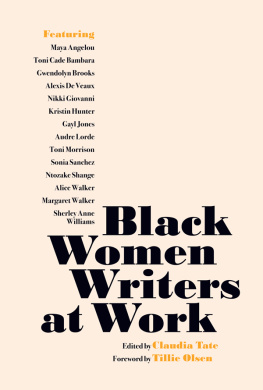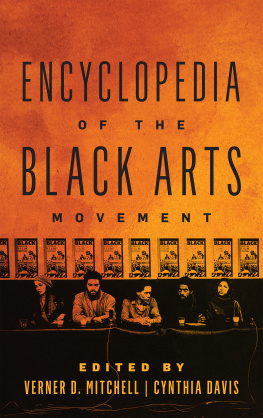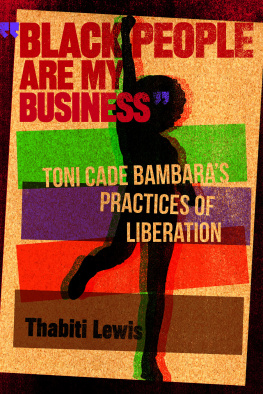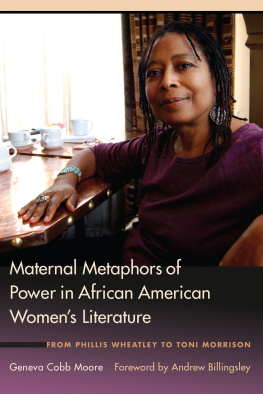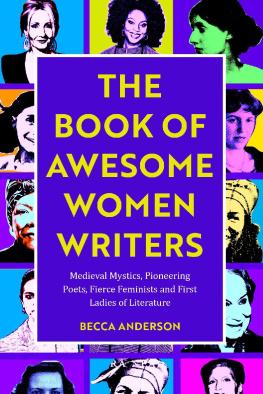Contents
Landmarks
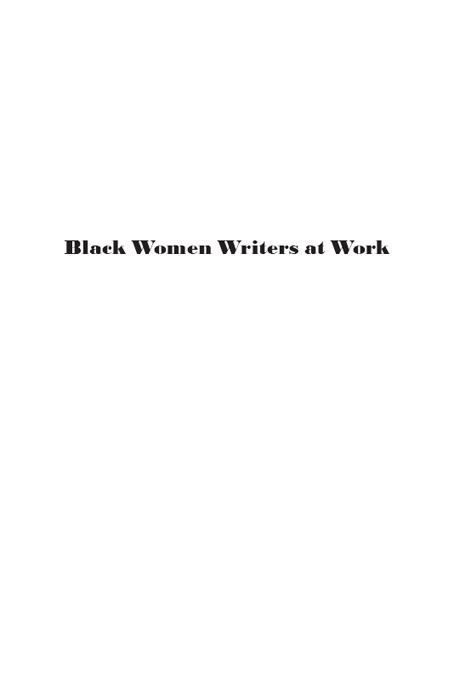
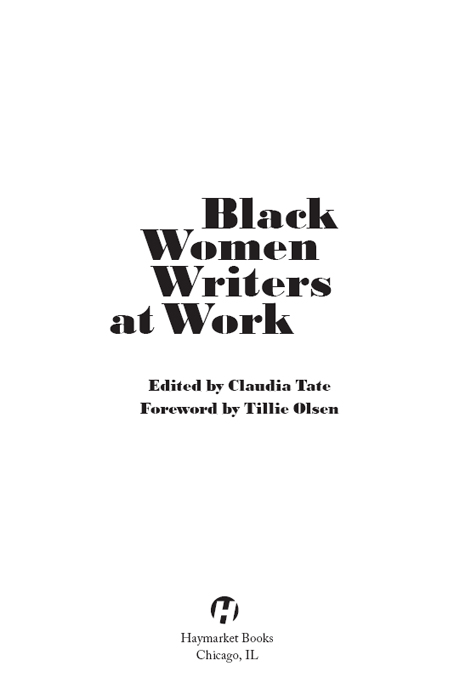
2023 Claudia Tate. First published in 1985 by Oldcastle Books, Ltd, in Harpenden, England.
This edition published in 2023 by
Haymarket Books
P.O. Box 180165
Chicago, IL 60618
773-583-7884
www.haymarketbooks.org
ISBN: 978-1-64259-855-1
Distributed to the trade in the US through Consortium Book Sales and Distribution (www.cbsd.com) and internationally through Ingram Publisher Services International (www.ingramcontent.com).
This book was published with the generous support of Lannan Foundation and Wallace Action Fund.
Special discounts are available for bulk purchases by organizations and institutions. Please email for more information.
Cover design by Rachel Cohen.
Library of Congress Cataloging-in-Publication data is available.

For my parents and grandmother, and for Harold, Read, and Jerome
Publishers Note
Haymarket Books is honored to bring this vital collection back into print. The assembled conversations contain unique insights into the creative worlds of literary and political luminaries who defied oppression to open new imaginative, inclusive, and challenging terrains. The interviews also provide a historical record of contested identities and ideas in motion.
Claudia Tate completed Black Women Writers at Work in 1983. This new edition retains the original text with only minor typesetting corrections and no substantive changes to the original text. This preserves the original content of this critically important book even when current sensibilities and language conventions would suggest different wordingand even when an author expresses views that readers may understandably find objectionable. We feel this allows for a fuller and more honest discussion of where we have been, where we stand today, and where vital work remains before us.
When Claudia Tate asked Audre Lorde how she understands her responsibility to her audience, Lorde replied in part, I write for these women for whom a voice has not yet existed, or whose voices have been silenced.... We need to share our mistakes in the same way we share our victories because thats the only way learning occurs.
Foreword
I nterviews with writers, that most recent of literary genres, have become a staple in our time.
All that makes the best of such collections fascinating, useful, distinguishes this one. These fourteen writers, each in their own way and voice, take us into the heart of the creative process.
With an accuracy, clarity, often musicality, that in themselves exemplify the writers love, care, for language, they illuminate origins, motive springs; how these become substance, vision; varying ways of working, of being productive. Uses of autobiographical materials are discussed; influences, predecessors; place and power of imagination; the self-critical faculty; criticism. The larger questions are here too: why and for whom do I write? What is the writers responsibility to ones work, to others, to society? Towards what do I aspire?
The result is one of those rare, rich source books for writers, readers, teachers, studentsall who care about literature and the creation of it.
Yetas if this were not amplethis collection transcends its genre. It becomes a harbinger book, a book of revelation, of haunting challenge, opening on to central concerns not only of writing, but of life, of living, today.
Each and all of these writers would honor any collection using the all-embracing word: writer without qualification in its title; each of these fourteen are passionately individual, complex, original; of diverse backgrounds, cultures. Yet they are fit, gathered here into what is considered a reductive, a lesser category: black writers, women writers, black women writers.
It is an unhappy fact that association with a category: Native-American, Asian-American, any hyphenated American, working class, black, women, ethnic, minority, sub-cultureU.S.A. American allhas, with occasional exception, relegated a writer to less than full writers status; resulted as well in ignorance of or lack of full recognition to a writers work and achievement.
But it is this very grouping, the very juxtaposition of these distinctly individual writers who are black, who are women, that enlarged, transformed this collection.
Women of color, daughters and granddaughtersoften blood kin stillof working people whose lives were, are, consumed mostly by the struggle for maintaining human life, they have a based closeness to what is called the human condition, to what Toni Cade Bambara calls the truth about human nature, about the human potential.
As in their work, we are wrenched into comprehensions significantly, crucially different from that which prevail in most of our countrys literature and social attitude today. Human functioning is revealed in its evil or in its true, experienced worth; value is attributed to where it humanly belongs; great capacities are recognized, traced in everyday use. They make us profoundly conscious of what harms, degrades, denies development, destroys; of how much is unrealized, unlived; instead of oppressed victims, they tell of the ways of resistances, resiliences.
As was said of Chekhov, they see and write with love and anguish of their human beings not only as their lives have made them (and they make their lives), but also as they might have been, might be, if circumstances were other. In a more painful sense than Emily Dickinson, they dwell in possibility, a fairer house than prose.
This vision remains the healing, life-affirming vision writers can give in our time when most of us are less than is in us to be, for inherent in it is the need to act to transform common circumstances so they do not injure; the belief that this is possible as well as necessary. It enables us to comprehend, shape, change reality, and the human destiny.
For the life of what I began to say here, turn to these pages on which these writers limn themselves and so much else; and from these pagesyou readers who have not yet the fortune of knowing their workturn to their way-opening work, as surely you will.
TILLIE OLSEN
Acknowledgments
I would like to thank Howard Universitys Faculty Research Program in the Social Sciences, Humanities, and Education, administered by Dr. Lorraine A. Williams, vice president for academic affairs, and Mr. Vernon Jones, research analyst for the vice presidents office; Dr. Estelle W. Taylor, chairman of the English department, who understood the demands of full-time research and who encouraged me during moments of uncertainty; Mrs. Constance Stokes, Janet Sims, the entire staff of the Moorland-Spingarn Research Center, and E. Ethelbert Miller and Curvin Simms of the Afro-American Resource Center for their research assistance; Dr. Stephen Henderson, director of the Institute for the Arts and the Humanities, and his administrative assistant, Juliet Bowles; Michael Miller and Harold Washington of Audio-Visual Aids; my friends and colleagues at Howard, especially Professors Paul Logan, Al Frost, Pat Jackson, Christian Filistrat, and Beverlee Bruce, who all convinced me that the end was in sight even when they could not see it for themselves; and Professors Michael S. Harper of Brown University, Alan Heimert of Harvard University, and Arthur P. Davis of Howard University for their support of my work.

